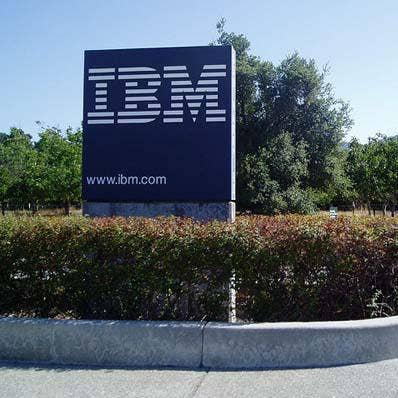IBM Partners Say Time For Change As CEO Ginni Rometty Steps Down
‘IBM can't be a traditional hardware and operating system company. It is moving to being a software company. But that begs the question of where the hardware and storage businesses will go,’ says Ron Venzin, partner at Focal Point Solutions Group.

IBM channel partners said they hope the new executive leadership expected to take over IBM will help overcome some of the issues Big Blue has faced over the last few years, but they are concerned about how some of the company's traditional products will fare as IBM continues its cloud and software push.
The partners' comments come in the wake of news Thursday that Virginia Rometty plans to step down from her CEO and president roles on April 6, after which she will be executive chairman of the board until she retires at year-end.
Stepping up as IBM's new CEO is Arvind Krishna, currently the company's senior vice president for cloud and cognitive software. James Whitehurst, currently senior vice president of IBM and CEO of Red Hat, will move up to become president of IBM.
[Related: IBM’s Arvind Krishna Named New CEO As Ginni Rometty Steps Down]
IBM has been a solid partner to the channel, and that is not likely to change, said Joe Mertens, president and CEO at Sirius Computer Solutions, a San Antonio, Texas-based solution provider and long-time IBM channel partner.
"Ginny did a lot for IBM," Mertens told CRN. "But she's been in that role for a long time. Getting new people in that leadership role will be good for IBM."
Mertens said there was a lot of speculation that Whitehurst, who came to IBM in 2019 when IBM acquired Red Hat, would get into one of the top executive roles, and that seems to have come to pass.
"Getting some of the DNA in what IBM got with its Red Hat acquisition will help make IBM a leader in the cloud," he said.
Rometty was good for IBM as it transitioned to a focus on public and private clouds, but it is time for a change, Mertens said.
"IBM went through a transition with [former IBM CEO] Sam Palmisano to Rometty, and she had her own transition to go through," he said. "But IBM needs someone with much more of a cloud focus to get revenue growth back again."
However, Don James, CEO of San Francisco-based Bear Cloud Technologies, said that Rometty’s departure “is very disappointing for the channel as she was quite a channel advocate and we will be hard for IBM to replace.”
Ron Venzin, partner at Focal Point Solutions Group, an Ellenton, Fla.-based solution provider and IBM channel partner, told CRN that Whitehurst has a lot of learning to do as he moves from his Red Hat focus to becoming president of all of IBM.
"However, his Red Hat experience will help IBM in some key areas," Venzin said. "He can help bring new life to IBM. But if you look at IBM's hardware and storage and traditional software businesses, they are not in his background. These will be new to him. He will breathe some new life in IBM. IBM has great technology, but how can they bring margins back. And if a software guy is running the business, what happens to hardware?"
Krishna, on the other hand, has been around IBM for a while, and will bring a new emphasis on things like software and IoT to the top executive offices, Venzin said.
"It will be interesting to see who he surrounds himself with," he said. "IBM can't be a traditional hardware and operating system company. It is moving to being a software company. But that begs the question of where the hardware and storage businesses will go."
IBM under Rometty has been making cuts and then acquiring other firms, but has not always done a good job of taking advantage of its acquisitions, Venzin said.
"People don't always stay after their company is acquired by IBM," he said. "And IBM has made way too many acquisitions which it then failed to integrate properly. So IBM loses a lot of good people. We've seen a lot of people we know leave. We can’t call the people we used to know and say, 'Here's our business idea, what can we do?' Their people are stretched out too thin. IBM has to decide who it is and what it wants to be."